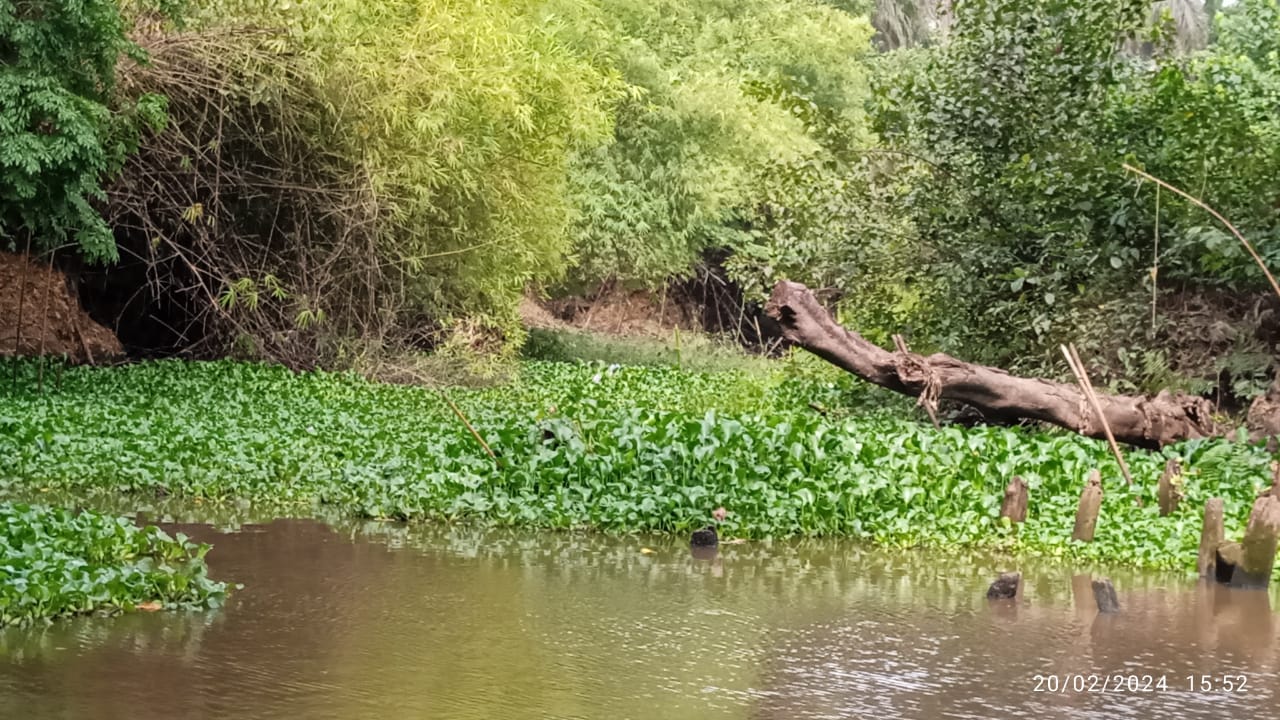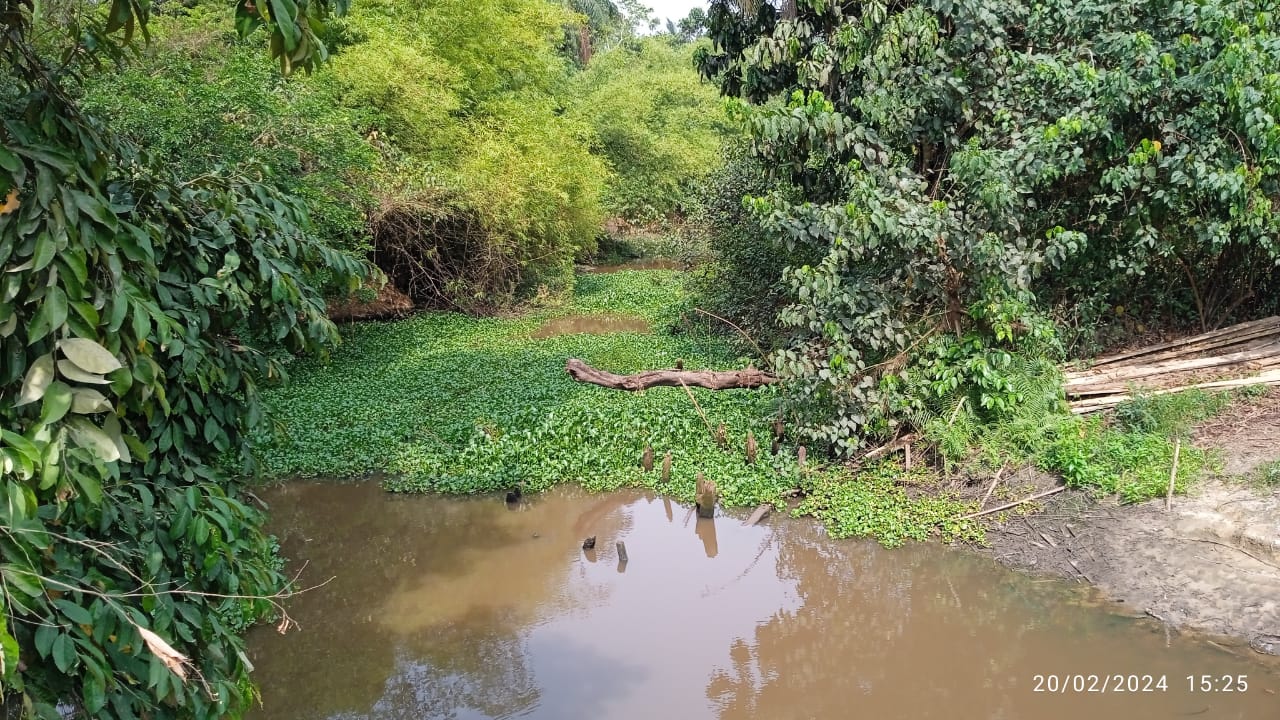World Seagrass Day: Need To Conserve Nigeria’s Ecosystem

By Obiabin Onukwugha and Grace Samuel
March 1 is designated as World Seagrass Day, a celebration initiated by environmental groups and supported by the United Nations. The purpose of this day is to bring attention to the vital role that sea grasses play in the ocean ecosystem.
The day was declared on 23 May 2022, by a resolution of the United Nations General Assembly (UNGA) under resolution A/RES/76/265.
The resolution highlights the urgent need to raise awareness at all levels and to promote and facilitate actions for the conservation of seagrasses in order to contribute to their health and development, bearing in mind that enhancing ecosystem services and functions is important for the achievement of the Sustainable Development Goals.
Initiated by environmental groups and endorsed by the United Nations, the day focus on the conservation of seagrass meadows and their importance in combating climate change and supporting marine life.

Photo by Obiabin Onukwugha
World Seagrass Day aims to raise awareness about the vital importance of seagrasses in our marine environments.
Every year, World Seagrass Day is observed to increase understanding of the significance of seagrasses in marine biodiversity, the challenges they encounter, and their role in promoting sustainable development and addressing climate change.
Seagrasses are flowering plants that grow in shallow waters around the globe, ranging from tropical regions to the Arctic circle. They create vast underwater meadows that support a diverse range of marine life and serve as important habitats, according to the UNGA.
In Nigeria, and especially the Niger Delta region, the marine ecosystem has been heavily impacted by oil exploratory activities.
This is as oil spill adorn the creeks, rivers and lakes. This has not only led to deaths in marine life, but sea grasses alike.
In other parts of the country, shipping activities have contributed to ecosystem pollution. This occurs by way of crude oil spills and inappropriate waste management facilities from ships.
This spills often occur on wetlands needed for commercial maritime activities and economic survival by local inhibitors, by ship owners who fail to adhere to Nigeria’s Marine and Environmental Laws.
Other activities that affect Nigeria’s ecosystem, according to environmental body, Health of Mother Earth Foundation (HOMEF), include; industrial fishing, habitat destruction, marine biotechnology, deep sea mining and other activities that are ecologically harmful.
In 2023, the federal government, under former President Muhammadu Buhari, said it was putting measures in place to enable the country achieve net zero carbon emission for shipping by 2050 in line with the policy of the International Maritime Organisation (IMO).
Also, the Director General of the Nigerian Maritime Administration and Safety Agency (NIMASA), Bashir Jamoh, said Nigeria plans to cut its Greenhouse Gas emissions intensity by 20 per cent by 2030, and a further 45 per cent reduction conditional on receiving climate finance, technology transfer and capacity building.
According to the UNGA, World Seagrass Day goes beyond being a mere commemoration; it serves as a plea for taking action to safeguard our marine ecosystems.
The well-being of our oceans and marine ecosystems is essential for the health and prosperity of our planet. Seagrasses, which are often underestimated, play a crucial role in sustaining these ecosystems.
Despite occupying just 0.1% of the ocean floor, these seagrass meadows play a crucial role in providing food and shelter for numerous species including fish, seahorses, and turtles.
They also contribute to sustaining major fisheries worldwide. Additionally, seagrasses enhance water quality by filtering, cycling, and storing nutrients and pollutants, thereby reducing contamination in seafood.
Seagrasses play a crucial role in carbon sequestration, preserving biodiversity, and supporting fisheries.
These carbon sinks are extremely effective and can hold up to 18% of the carbon found in the world’s oceans. This makes them a valuable solution for addressing the effects of climate change.
They also help protect vulnerable ecosystems and species, like coral reefs, by mitigating ocean acidification.
Additionally, they serve as a crucial barrier along coastlines, reducing the power of waves and safeguarding coastal communities from the growing threats of floods and storms.
The theme of seagrass conservation is closely linked to the Sustainable Development Goals (SDGs), with a particular focus on Goal 14 (Life Below Water).
Despite its importance, seagrass faces threats from human activities, leading to a decline in seagrass beds worldwide.
A recent United Nations report highlights a concerning rate of loss in seagrass thus, emphasizing the need for immediate conservation efforts.
As the globe takes steps in conserving its sea grass, the federal government of Nigeria must be intentional in ensuring that both shipping and exploratory activities observe and obey its environmental and marine laws in order to conserve this all-important part of the water body.
